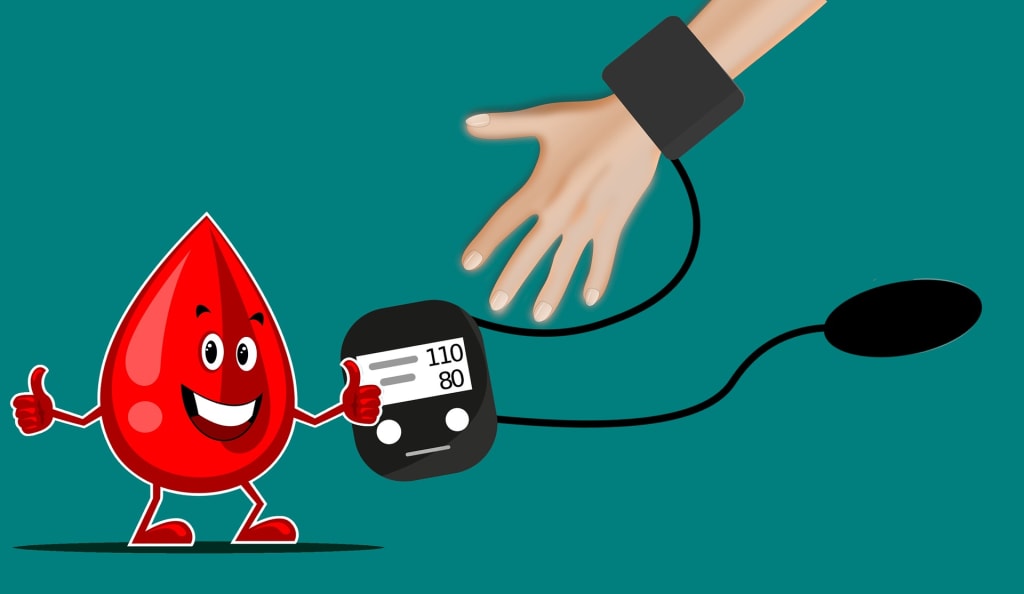How to overcome hypertension?
lifestyle activity

INTRODUCTION:
Hypertension, also known as high blood pressure, is a condition where the force of blood against the walls of your arteries is consistently too high. This can cause damage to your arteries and other organs, and over time, can lead to serious health problems such as heart disease, stroke, and kidney failure. In this blog post, we will discuss what hypertension is, its causes, symptoms, diagnosis, treatment, and prevention.
Blood pressure is the force of blood pushing against the walls of arteries as the heart pumps blood. Hypertension is diagnosed when this force is consistently too high, meaning that the systolic pressure (top number) is greater than or equal to 140 mm Hg and/or the diastolic pressure (bottom number) is greater than or equal to 90 mm Hg.
CAUSES OF HYPERTENSION:
There are two types of hypertension: primary (essential) hypertension and secondary hypertension.
Primary hypertension is the most common type, and the exact cause is unknown. However, several factors can contribute to its development, including genetics, age, obesity, lack of physical activity, excessive alcohol consumption, stress, and a diet high in sodium and low in potassium.
Secondary hypertension, on the other hand, is caused by an underlying medical condition such as kidney disease, adrenal gland tumours, sleep apnea, or certain medications. In these cases, treating the underlying condition can often help to lower blood pressure.
SYMPTOMS OF HYPERTENSION:
Hypertension is often called the “silent killer” because it often has no symptoms until it has caused significant damage to your body. However, some people with hypertension may experience symptoms such as headaches, shortness of breath, dizziness, chest pain, and nosebleeds. If you experience any of these symptoms, it is essential to see your doctor immediately.
DIAGNOSIS OF HYPERTENSION:
Hypertension is diagnosed by measuring your blood pressure using a device called a sphygmomanometer. Your doctor will typically take multiple readings at different times to confirm the diagnosis. If you have hypertension, your doctor may also perform additional tests to check for underlying medical conditions that may be contributing to your high blood pressure.
TREATMENT OF HYPERTENSION:
Treatment for hypertension typically involves a combination of lifestyle changes and medication. Lifestyle changes that can help to lower blood pressure include:
Reducing salt intake: Aim to consume less than 2,300 milligrams of sodium per day, or less than 1,500 milligrams if you have certain health conditions such as kidney disease.
Eating a healthy diet: Focus on eating plenty of fruits, vegetables, whole grains, and lean proteins.
Engaging in regular physical activity: Aim for at least 150 minutes of moderate-intensity exercise per week.
Maintaining a healthy weight: If you are overweight or obese, losing weight can help to lower blood pressure.
Limiting alcohol intake: Men should consume no more than two drinks per day, and women should consume no more than one drink per day.
If lifestyle changes alone are not sufficient to lower your blood pressure, your doctor may also prescribe medication. There are several types of medications available to treat hypertension, including diuretics, beta-blockers, ACE inhibitors, and calcium channel blockers. Your doctor will work with you to determine which medication is best for your specific needs.
PREVENTION OF HYPERTENSION:
Although there is no guaranteed way to prevent hypertension, making healthy lifestyle choices can help to reduce your risk. This includes:
- Eating a healthy diet
- Engaging in regular physical activity
- Maintaining a healthy weight
- Reducing stress
- Limiting alcohol intake
- Not smoking
- Getting enough sleep
CONCLUSION:
Regular monitoring of blood pressure is essential to identify hypertension early and manage it effectively. People with hypertension should work closely with their healthcare provider to develop a treatment plan that works best for them. With proper management, people with hypertension can lead long, healthy lives.
About the Creator
D.Priyanga chandrasekar
wife
mama for girl baby
dietitian
content creator






Comments
There are no comments for this story
Be the first to respond and start the conversation.